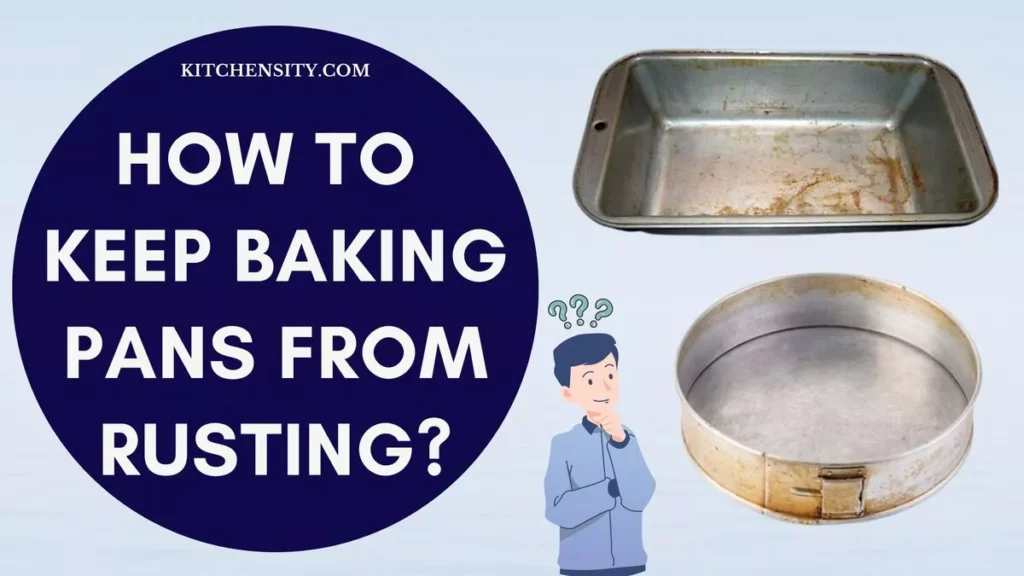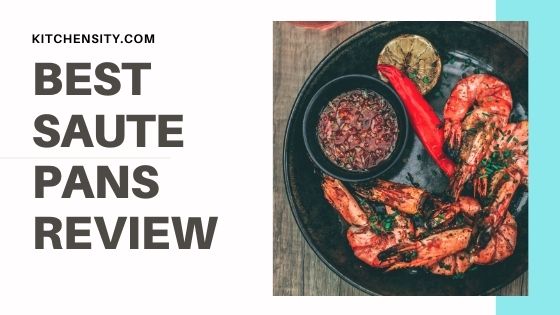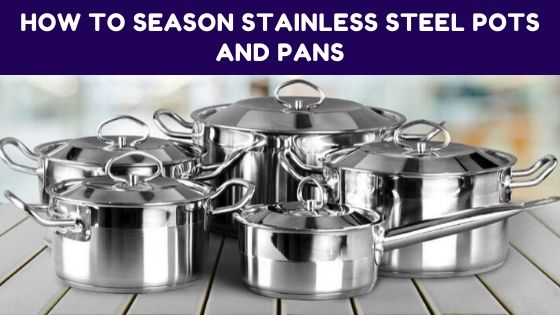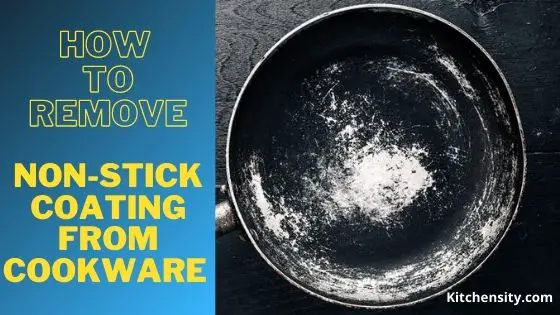Baking is a beloved activity that brings joy to many kitchens.
However, one common issue that plagues bakers is the rusting of baking pans. Rust not only affects the appearance of your pans but also poses health risks.
In this guide, we’ll explore practical strategies to prevent rusting in your baking pans. From proper cleaning methods to smart storage solutions, we’ll equip you with the knowledge to maintain the quality of your pans.
With these tips, you can enjoy worry-free baking adventures, knowing your pans will stay rust-free and continue delivering delightful creations to your table for years to come.
Let’s dive in and discover the secrets to preserving your baking pans!

Table of Contents
- 1 How To Keep Baking Pans From Rusting?
- 2 Understanding The Causes Of Rust
- 3 8 Ways To Keep Baking Pans From Rusting
- 4 Is Rust On Baking Pans Dangerous?
- 5 How To Remove Rust From Baking Pans?
- 6 Food Items Responsible For Rusting Of Baking Pans
- 7 Final Verdict
- 8 FAQs
- 8.1 Is It Ok To Use Rusted Baking Pans?
- 8.2 Can I Use Cooking Spray As An Alternative To Seasoning My Baking Pans?
- 8.3 How Often Should I Season My Baking Pans?
- 8.4 Can I Use Steel Wool To Remove Rust From My Baking Pans?
- 8.5 Is It Safe To Use Rusted Baking Pans?
- 8.6 Can I Use The Baking Soda And Vinegar Solution On Non-Stick Pans?
How To Keep Baking Pans From Rusting?
To prevent baking pans from rusting, regularly season them with oil, dry them thoroughly after washing, and finally, store the pans properly, avoiding direct contact between them to prevent moisture from getting trapped. These simple steps will keep your baking pans in excellent condition for worry-free baking.
Also Read – What Happens When You Put A Baking Pan On The Grill?
Understanding The Causes Of Rust
Before we delve into preventive measures, it’s essential to grasp why baking pans rust. Rusting occurs primarily due to exposure to moisture and oxygen.
When baking pans come into contact with water or food residues are left on their surface, a chemical reaction takes place, leading to the formation of rust.
Understanding these causes will help us implement effective strategies to keep our baking pans rust-free and in excellent condition.
8 Ways To Keep Baking Pans From Rusting
Rust not only tarnishes the appearance of your baking pans but can also be harmful to your health. To preserve the quality of your pans and avoid rusting, here are some effective strategies:
1. Season Your Baking Pans
Seasoning your baking pans is a classic technique used by seasoned bakers to prevent rusting and enhance the non-stick properties of the pans.
- To season your pans, apply a thin layer of cooking oil (such as vegetable oil or shortening) evenly on the entire surface, including the sides.
- Place the pans upside down in an oven preheated to around 350°F (175°C) for an hour.
- This process forms a protective coating on the pan’s surface, preventing moisture from causing rust.
2. Dry Thoroughly After Washing
- After each use, it’s crucial to wash your baking pans thoroughly and ensure they are completely dry before storage.
- Moisture is the primary catalyst for rust formation, so wiping the pans dry with a clean cloth or allowing them to air dry is essential.
Also Read – Why Do Baking Sheets Bend In The Oven?
3. Store Pans Properly
How you store your baking pans can significantly impact their susceptibility to rust.
- Avoid stacking pans directly on top of each other without any protective layer.
- Stacking can trap moisture between the pans, leading to rust. To prevent this, use pan separators or place a paper towel between each pan.
4. Use Silicone Baking Mats
- Silicone baking mats are an excellent investment for both preventing rust and promoting easy food release.
- These mats provide a protective layer between the metal surface of the pan and the food, minimizing the chances of rust formation.
5. Avoid Abrasive Cleaners
- Steer clear of harsh and abrasive cleaning agents when washing your baking pans.
- These cleaners can strip away the protective coating on the pans, making them more vulnerable to rust.
- Instead, opt for mild dish soap and soft sponges to clean your pans gently.
Also Read – Are Discolored Aluminum Pans Safe To Use?
6. Remove Stuck-On Residue Promptly
- Leaving stuck-on food residues on your baking pans can attract moisture and lead to rust.
- To avoid this, promptly remove any remnants of food after each use.
- If needed, soak the pan in warm soapy water to loosen the residues, and then use a non-abrasive sponge to clean thoroughly.
7. Baking Soda And Vinegar Solution
- For a natural and effective rust-fighting cleaning solution, mix baking soda and vinegar to form a paste.
- Apply this mixture to the rusted areas of your pans and let it sit for a few minutes.
- Then, gently scrub the rust away before rinsing and drying the pan thoroughly.
8. Invest In Quality Baking Pans
- Investing in high-quality baking pans made from materials like stainless steel or cast iron can significantly reduce the risk of rusting.
- These materials are more resistant to rust and provide superior durability, ensuring your pans remain rust-free for an extended period.
By following these tips, you can keep your baking pans in pristine condition and rust-free, allowing you to enjoy countless baking adventures without any worries.
Also Read – Can You Deep Fry In A Non-Stick Pan?
Is Rust On Baking Pans Dangerous?
Rust on baking pans can indeed be dangerous, and it’s essential to take preventive measures to avoid its formation. Rust is formed when the metal surface of the pan reacts with moisture and oxygen. When rust forms on baking pans, it can pose several risks:
- Health Concerns: Rust is essentially iron oxide, and when it comes into contact with food, it can contaminate the food. Consuming rust particles can lead to various health issues, such as gastrointestinal problems and toxicity.
- Altered Taste: Rust can impart a metallic taste to the food, affecting its flavor and overall quality.
- Food Safety: Rust can create a breeding ground for harmful bacteria, making the food cooked in rusted pans unsafe for consumption.
- Reduced Non-stick Properties: Rust can damage the non-stick coating of pans, making them less effective in preventing food from sticking and complicating the cooking process.
- Aesthetics: Rust detracts from the appearance of baking pans, making them less appealing and potentially affecting the presentation of your culinary creations.
To ensure the safety of your food and the longevity of your baking pans, it’s crucial to follow proper care and maintenance procedures to prevent rust formation.
Regularly seasoning, drying, and storing your pans correctly, as well as using protective layers like silicone baking mats, are effective ways to keep them rust-free and safe for use.
Also Read – Can You Put A Roasting Pan On The Grill?
How To Remove Rust From Baking Pans?
Removing rust from baking pans is essential to ensure their safety and prolong their usability. Here are some effective methods to remove rust from baking pans:
- Vinegar Soak:
- Fill the rusted baking pan with white vinegar, ensuring that the affected areas are completely submerged.
- Let it soak for several hours or overnight. The acidic properties of vinegar will help dissolve the rust.
- After soaking, scrub the rusted areas with a sponge or non-abrasive brush to remove the loosened rust.
- Baking Soda Paste:
- Create a paste by mixing baking soda with water to form a thick consistency.
- Apply the paste to the rusted areas of the pan and let it sit for at least 30 minutes. Use a sponge or soft brush to scrub the rust away.
- Baking soda is a mild abrasive that can effectively remove rust without damaging the pan’s surface.
- Lemon And Salt Scrub:
- Cut a lemon in half and sprinkle salt on the cut side.
- Use the lemon as a scrubber to work the salt into the rusted areas of the pan.
- The citric acid in the lemon and the abrasiveness of the salt will help lift the rust.
- Rinse the pan thoroughly with water after scrubbing.
- Steel Wool Or Aluminum Foil:
- For stubborn rust, you can use fine-grade steel wool or crumpled aluminum foil to gently scrub the affected areas.
- Be cautious not to scrub too aggressively, as it may scratch the pan.
- Afterward, rinse the pan thoroughly to remove any loose rust particles.
- Commercial Rust Removers:
- There are commercial rust removal products available that are specifically designed for kitchenware.
- Follow the manufacturer’s instructions and safety precautions when using these products.
- Oven Cleaner:
- Some oven cleaners can also be used to remove rust from baking pans.
- Apply the oven cleaner to the rusted areas and let it sit for the recommended time. Then, scrub the rust away with a sponge or brush.
After removing the rust, make sure to wash the pan thoroughly with soap and water to remove any residue from the rust removal process.
Once the pan is clean and rust-free, take preventive measures, such as seasoning the pan or using protective layers, to avoid future rusting.
Proper care and maintenance will help keep your baking pans in excellent condition and extend their lifespan.
Also Read – How To Keep Food From Sticking To Copper Pans?
Food Items Responsible For Rusting Of Baking Pans
Certain food items can contribute to the rusting of baking pans. Rusting occurs when the metal surface of the pan comes into contact with moisture and oxygen.
Some food items can accelerate the rusting process due to their acidic or corrosive properties. Here are a few food items that can be responsible for rusting of baking pans:
- Tomatoes And Tomato-Based Sauces: Tomatoes are acidic, and their high acidity can react with the metal surface of the baking pan, promoting rust formation.
- Citrus Fruits: Citrus fruits like lemons, oranges, and limes contain citric acid, which can also contribute to rusting when in contact with metal pans.
- Vinegar: Vinegar is acidic and can cause a chemical reaction with the metal, leading to rust.
- Marinades And Acidic Ingredients: Marinades often contain acidic ingredients like vinegar, lemon juice, or wine, which can speed up the rusting process if left on the pan for an extended period.
- Fermented Foods: Fermented foods can be acidic, and their prolonged contact with the metal surface can promote rusting.
- Salt: While salt itself may not cause rust, it can accelerate the process when it comes into contact with moisture. Salt can act as an electrolyte, increasing the rate of rust formation.
To prevent rusting caused by these food items, it’s essential to remove any residues promptly after cooking and wash the pan thoroughly with soap and water.
Additionally, seasoning the baking pans regularly and ensuring they are completely dry before storing can help create a protective barrier against rust formation.
Proper care and maintenance will ensure that your baking pans remain in excellent condition and rust-free for a long time.
Also Read – Does Induction-Ready Mean Oven-Safe?
Final Verdict
Maintaining rust-free baking pans is essential for both the longevity of your kitchen tools and the safety of your food. By following the practical and effective strategies outlined in this guide, you can ensure that your baking pans remain in excellent condition and free from rust.
Remember to season your pans regularly, dry them thoroughly after washing, and store them properly to prevent moisture from causing rust. Embrace the use of silicone baking mats and avoid abrasive cleaners to preserve the protective coating of your pans.
With these preventive measures in place, you can indulge in countless baking adventures without the worry of rust affecting your culinary creations.
By taking good care of your baking pans, you’ll enjoy delicious and delightful treats for years to come. Happy baking!
Also Read – Can Induction Pans Be Used On Gas Stoves?
FAQs
-
Is It Ok To Use Rusted Baking Pans?
No, it is not okay to use rusted baking pans. Using rusted baking pans can pose several risks to your health and affect the quality of your food.
-
Can I Use Cooking Spray As An Alternative To Seasoning My Baking Pans?
Yes, cooking spray can also create a protective layer, but make sure to avoid sprays with added chemicals that could damage the pans.
-
How Often Should I Season My Baking Pans?
It’s best to season your pans after every few uses, especially if you notice the non-stick coating wearing off.
-
Can I Use Steel Wool To Remove Rust From My Baking Pans?
Steel wool can be too abrasive and may damage the pan’s surface. Opt for gentler cleaning methods instead.
-
Is It Safe To Use Rusted Baking Pans?
It is not recommended to use rusted pans, as the rust can transfer to your food and pose health risks.
-
Can I Use The Baking Soda And Vinegar Solution On Non-Stick Pans?
This solution is best suited for regular metal pans. For non-stick pans, stick to non-abrasive cleaning methods to avoid damaging the coating.
Katrina Smith is a seasoned expert with over 25 years of experience in all things related to cooking and the kitchen. As an avid cook and kitchen enthusiast, she is passionate about sharing her knowledge and expertise on cookware, kitchen appliances, kitchen tips, and kitchen staples.
Through her articles and reviews, Katrina aims to inspire and help others improve their cooking skills, experiment with different ingredients, and invest in quality cookware and appliances.

![How To Season And Clean Cast Iron Cookware? [4 Effective Ways] 3 How To Season And Clean Cast Iron Cookware](https://www.kitchensity.com/wp-content/uploads/2020/06/How-To-Season-And-Clean-Cast-Iron-Cookware.jpg)

![Stainless Steel Vs Nonstick Vs Ceramic Cookware Set [An Ultimate Guide 2023] 5 Stainless Steel vs Nonstick vs Ceramic Cookware Set](https://www.kitchensity.com/wp-content/uploads/2019/09/Stainless-Steel-vs-Ceramic-vs-Nonstick-Cookware-Sets-e1621083482728.jpg)

![What Pans Can You Use Cooking Spray On? [Ultimate Guide] 7 Types of pans with which cooking spray can be used](https://www.kitchensity.com/wp-content/uploads/2023/02/What-Pans-Can-You-Use-Cooking-Spray-On.jpg)
